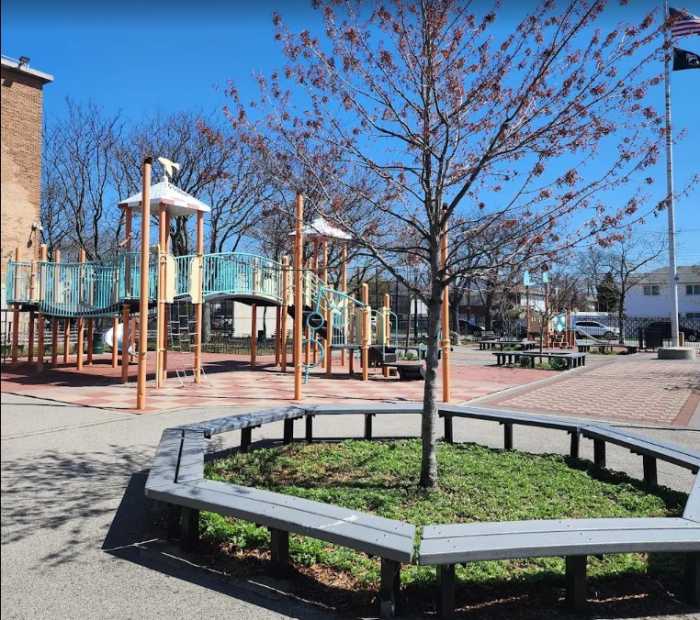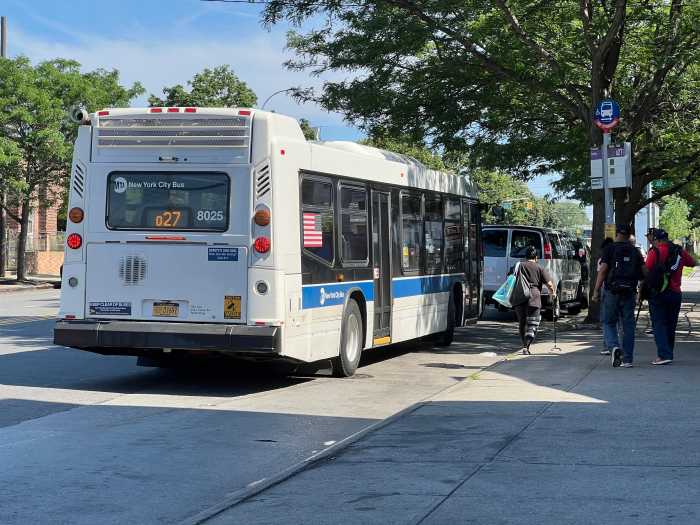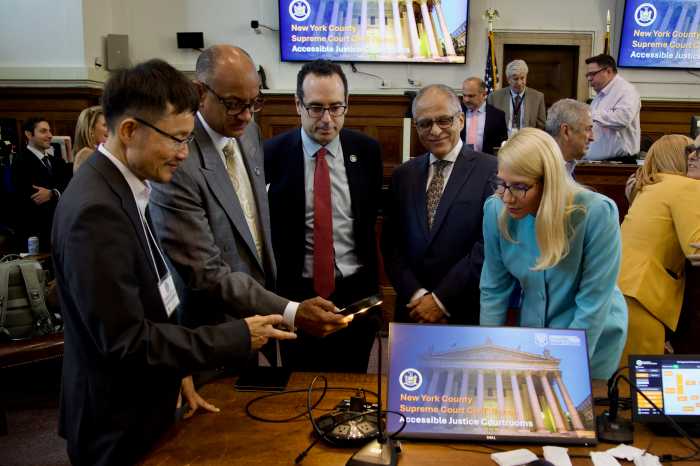By Sophia Chang
Flug is going on the 2005 March of the Living, leaving May 3 to join an estimated 80 people from the New York metropolitan area and 18,000 participants worldwide on a weeklong trip to the sites of former concentration camps in Nazi-occupied Poland. Some participants will continue on to Israel.As the Jamaica Estates native noted, this will not be a typical vacation.”I'm a little overwhelmed. We go straight from the airport in Warsaw to (concentration camp site) Treblinka. Usually on a trip you check into the hotel, relax for a bit,” she said in a recent interview. “This is not your usual sort of vacation. I don't think of it as rest and relaxation.”Flug's participation was partly spurred by her parents' decision to attend the annual march and to visit the camp sites for the first time on the 60th anniversary of the Holocaust's end.”We were sitting around in a Chinese restaurant one night and my father mentioned that the Holocaust Resource Center was doing this, and my boyfriend and I said we would go as well,” she said.Flug's father is Dr. Arthur Flug, education outreach coordinator at Queensborough Community College's Holocaust Resource Center in Bayside, which is a partner in the march.The college is hosting a kickoff for the march during a boroughwide Holocaust remembrance event May 2 at 7 p.m. in the student union building, with Borough President Helen Marshall, other elected officials, clergy, community leaders and members of the Jewish War Veterans.In addition, Flug, an assistant district attorney in the Bronx, said her upbringing and education had taught her the horrific legacy of the Holocaust, but being at the camps would give her a different perspective.”Just being raised in a traditional Jewish home and being given a Jewish education from an early age in Hebrew school certainly instilled strong values in me,” she said. “But from being educated about the Holocaust at an early age, you grow used to seeing the pictures and hearing the stories. But seeing the exact place where it happened, it's going to be a very emotional experience.”Although Flug has traveled to Israel several times, even celebrating her bat mitzah at the Western Wall, she has never been to the camp sites, which she said was a deliberate choice.”In college, I studied in Italy and traveled all over Europe, but I specifically did not go to Poland because my grandparents always said never go back,” Flug said.Her paternal grandparents fled Poland before the war and settled in the Lower East Side. Although they escaped the camps, Flug said her grandparents and survivors from that era may not have understood her need to visit the sites. Her paternal grandparents died when she was a child, but Flug's boyfriend's grandmother has spoken to the couple about her experiences.”My boyfriend's grandmother is from a town on the border of the Ukraine and Poland, and she's talked to us about her town and shtetl (small village),” Flug said. “She laughs at us for going back. I don't think she necessarily thinks of it as an educational experience. She thinks, 'That's a place I wanted to leave. Why would you want to go back?' It's a knee-jerk reaction.”But for Flug, who is 28 and did not grow up directly affected by the war, visiting the sites can help younger generations try to grasp the scope of evil that is possible.”People in my parents' generation have some sort of memory of when it was going on, and they're better able to relate it to their lives. They can draw it back to their personal history,” she said. “I think it's harder for younger people to contextualize this.”Reach reporter Sophia Chang by e-mail at news@timesledger.com, or by phone at 718-229-0300, Ext. 146.




































